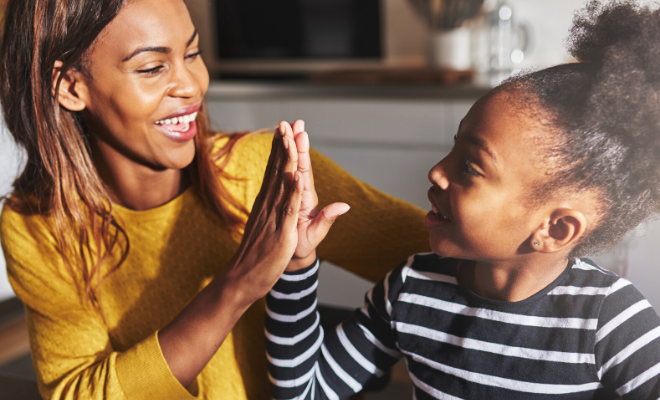Talking To Your Children About Coronavirus
March 15, 2020
With school closures across the country, changing schedules and routines, and all of the adults talking about it all the time – children know there is something called coronavirus that is changing their lives. But that doesn’t mean they actually know what coronavirus is, or how to deal with it. It’s important to talk to your children about coronavirus right now.

How Parents Can Talk To Children About Coronavirus
When you are dealing with a big topic, like a global health situation, it’s important to give children age-appropriate information to help them process the changes in their lives, ease any fears they might have, and combat any misinformation they may have picked up from friends, the news, or overhearing snippets of conversations.
Talking to Younger Children (under 10 years) About Coronavirus
Here are a few things to cover as you talk to younger children about coronavirus:
- Coronavirus is a newly discovered virus that is similar to a cold. Thankfully, around the world, we know that the coronavirus outbreak has had mild effects on children. Making the comparison of coronavirus to a cold is an appropriate comparison that young children will understand.
- Reassure young children that most people who have gotten sick with coronavirus have had a mild case and have fully recovered. You don’t need to talk about mortality rates or infection rates with children in this age group. Keep it simple.
- Talk to your children about your plans to keep them safe and healthy. Example: because we don’t want you to get sick, we will be staying at home, the school is closing for a few weeks, we are washing our hands more often, and coughing in our elbows, etc.
In addition to talking about coronavirus, parents should actually be having their children practice hand washing together for at least 20 seconds (two times through the Happy Birthday song!), and also practice coughing and sneezing into their elbow.
Talking to Older Children (over 10 years) About Coronovirus
With kids this age, you should also talk about social distancing and why it’s important. This will help children will better understand why they are missing normal events, like school, planned travel, and church, and why they aren’t spending their time off of school with friends or at camps.
Practicing social distancing means you will stay home as much as possible and keep a gap of six feet or more between yourself and others if you do need to leave the house. Explain that fewer interactions with people, and the added distance when you must interact, means less chance of exposure to the new coronavirus. If you do get infected, social distancing lowers the chance of spreading the infection to someone else before you know you have it.
Remind your children that this virus has mild effects on children, but can be more severe for older adults or people that are immune-compromised. Because we want to do our part to protect the older people in our life that we love, like grandma and grandpa, we are going to be staying home for the next few weeks.
Talking To Children About Coronavirus (All Ages)
It is important to teach children about science and health at all ages. Parents should modify their terminology based on their child’s age to use words that they understand. This is a great comic that you may want to read with your children as you talk to them about coronavirus.
It’s also very important to ask your children what they’ve heard about coronavirus and what they are feeling. Listening is a big part of addressing concerns. You might be surprised at how much your children have already picked up (and how much of what they’ve picked up is scary and/or misinformation).
Remember: children are incredibly smart and can sense anxiety in their parents. Try to take a deep breath and not panic. Children have been very mildly effected and there has been no reported deaths in children under the age of 9.
While no one ever wanted this pandemic to happen, this is a special opportunity to spend time with your children. It’s extremely important that parents take the recommendations from the CDC seriously: cancel travel, cancel events, and practice social distancing. The silver lining of these major changes is it allows for families to spend quality time together. Reassure your children, read books together, and play games. Americans are strong and will make the best of this difficult situation.
Author: Dani Stringer, MSN, CPNP, PMHS – founder of KidNurse and MomNurse Academy